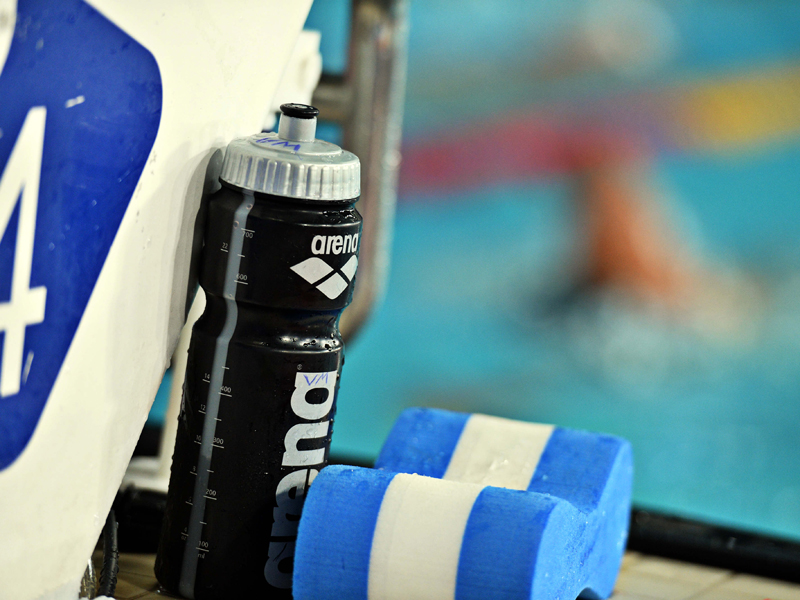Why is it important for a swimmer to hydrate? Let’s find out!
Hydration is perhaps one of the most underestimated aspects of any sport.
Bearing in mind that most weight loss during training is mainly in the form of liquids, it is obviously important to regain what you’ve lost. It is particularly overlooked in swimming because, compared to other sports, you do not realize how much liquid you lose in the pool. For example, when you sweat or feel hot when running or playing football, you obviously want a drink of cold water to cool yourself down. When you are in the swimming pool, it’s different. You do not feel like you are sweating, but you lose liquids just the same, like producing more urine. For this reason, you are more likely to suffer from dehydration problems.
What kind of problems are we talking about?
The most obvious problem is the greater likelihood of suffering from cramps. Creating a water imbalance disrupts the process of muscle contraction and, hence, results in cramps. This can also cause sudden changes in body temperature, cardiac stress, and fatigue. This inevitably means that failing to hydrate before/during/after physical exercise can affect your performance.
All this can be avoided in two ways: firstly, just keep hydrated throughout the day; secondly, always have at least a half-liter (or, better still, one-liter) bottle of water with you at the poolside.
What should be in the bottle? Ordinary mineral water is better than nothing. There are plenty of ready-made products on sale or products you can prepare yourself, which are marketed as being the very best for sports. Rather than recommend any specific brand, my advice is to learn how to read the label. Make sure your drink:
- Tastes good (obviously, this is a subjective matter).
- Contains at least some carbohydrates (approximately 8%).
- Is easy to digest.
- Contains no artificial colors.
If, on the other hand, you would rather have a homemade drink, here is my perfect “recipe:”
- 1/2-1qt of water.
- 1-2 carefully squeezed oranges (or tangerines/lemons).
- A pinch of salt.
- 2-4 bags of sugar.
Finally, here is something to bear in mind to avoid any problems: never wait until you are thirsty to take a drink. Remember that the feeling of thirst is an alarm your body sets off to warn you that it needs liquids and minerals. Most importantly, being in the water tricks your body’s sensory receptors and stops you from feeling thirsty.
In the end, drink small amounts frequently rather than a lot occasionally!
Cheers!
—–
